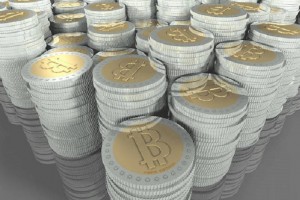Latest Posts
-
Finance 0
BOJ Kuroda Says He Has More Easing Measures
Bank of Japan Governor Haruhiko Kuroda said Wednesday that the central bank has “ample room” to ramp up its easing measures and is ready to cut interest rates deeper into negative territory if necessary in order to meet his ambitious inflation target. Kuroda shocked global markets last week by deciding to set a key interest rate below zero, in a desperate attempt to save his embattled campaign to defeat deflation and generate 2% inflation. The move helped send Tokyo shares sharply higher, but it also added to speculation that the bank’s main policy of flooding the economy with cash through asset purchases has reached its limit. The BOJ ...On February 3, 2016 / By Kurt Osterberg -
Finance 0
Behold Unintended Consequences: Japan Cancels 10Y Auction For First Time Ever Due To Sub-Zero Rates
Dear Bank of Japan, how do you spell unintended consequences: PLANNED MARCH SALE OF 10-YEAR JAPANESE GOVERNMENT BONDS THROUGH BANKS TO BE CANCELED AMID EXPECTED BELOW-ZERO YIELDS – NIKKEI JAPAN’S MINISTRY OF FINANCE IS EXPECTED TO ANNOUNCE WEDNESDAY THE FIRST-EVER DECISION TO CALL OFF SALES OF 10-YEAR JGBS- NIKKEI Here is the full Nikkei report on this absolute stunner of a development: The planned March sale of 10-year Japanese government bonds through banks to retail investors, municipalities and others will be canceled amid expected below-zero yields following the Bank of Japan’s recent move to adopt negative interest ...On February 3, 2016 / By Kurt Osterberg -
Finance 0
Google Stock – Alphabet Inc. Passed Apple Inc. As The Most Valued Company
After an amazing report of Alphabet, Apple was displaced by Alphabet as the most valued company in the world. Yesterday, Alphabet reported revenues and earnings better than expected by analysts and its shares went up strongly. The company smashed expectations on both ends, bringing in $21.3 billion in revenue and earnings of $8.67 per share. Analysts were expecting earnings of $8.09 on $20.8 billion in revenue. And with that, Alphabet became the most valuable publicly-traded company in the world, coming in at a market cap $558 billion after jumping about 8% after the company reported its fourth-quarter earnings, and passing Apple, which sits...On February 3, 2016 / By Kurt Osterberg -
Finance 0
Oil Firms Delaying Projects
The 18-month plunge in global oil prices continues unabated. The price is now below $28 per barrel, thanks to even more supply streaming in from Iran. The International Energy Agency warns that the oil market “could drown in oversupply.” The collapse in the oil price has gotten so bad, some sources report that the Fed has told banks not to market their loans to energy companies. The Fed, of course, has denied those reports. Janet Yellen’s crew is worried, and they don’t want to see a wave of bankruptcies spreading contagion from the shale firms to the overall economy. In other words, they want to avoid a repeat of the subprime mort...On February 3, 2016 / By Kurt Osterberg -
Finance 0
Pressure On Yuan Continues: China Blames “Selectively Blind, Jealous People” For Sell-off
The value of the offshore yuan vs. the U.S. dollar continues to sink following a brief intervention respite by Chinese authorities. Yuan Bears Swamp People’s Bank of China China needs to float the yuan and let the currency get where it’s going to go because intervention never works. It just drains reserves, ultimately making matters worse. Yuan bears see the futility of the intervention schemes as Depreciation Bets Swamp PBOC Fightback. The yuan traded in Hong Kong fell as much as 0.3 percent, taking its discount to the currency in Shanghai to 0.97 percent. That’s the most since Jan. 11, when the People’s Bank of China launched a two...On February 3, 2016 / By Kurt Osterberg -
Finance 0
S&P 500 And Nasdaq 100 Forecast – February 3, 2016
S&P 500 The S&P 500 fell rather significantly during the course of the session on Tuesday, testing the 1900 level for support. It did find a bit of support there, so if we can get a bit of a bounce I think that this market will probably head back to the 1940 handle. It’s not necessarily ready to make a longer-term move higher until we get to the 1950 level of, and once we get above there we could be free to go all the way to the 2000 handle. At this point, do recognize that we could go lower but it is probably going to have quite a bit of noise between here and the 1860 handle, and that could be difficult to hang onto to the downsid...On February 3, 2016 / By Kurt Osterberg -
Finance 0
Stock Market Valuation In Perspective
In 2015, the stock market’s valuation was widely downplayed. But why would market watchers do such a thing with the U.S. stock market trading at its richest valuation in more than a decade? Well, in order to recommend an overweight position in U.S. equities or an underweight position in fixed income, pundits almost had to disregard valuation. The chart below illustrates just how high the S&P 500’s valuation reached last year. These forward ratios use a blended estimate of earnings or sales over the next four quarters. Due to the high variability in earnings estimates, the forward price-to-earnings (P/E) ratio indicated that the mark...On February 3, 2016 / By Kurt Osterberg -
Finance 0
One Chart That Rings An Alarm For Future Chinese Consumption
“…emerging markets experienced a more recent run-up in indebtedness, which started around the time of the crisis, and is still continuing. In other words, their deleveraging has not even begun. This has the potential to create persistent spending disappointments, if monetary policy is unable to stimulate other spending sufficiently.” – “Debt, Demographics and the Distribution of Income: New challenges for monetary policy” – Gertjan Vlieghe, Member of Monetary Policy Committee, Bank of England, January 18, 2016. This observation from Vlieghe of the Bank of England (BoE) should ring alarm bells for anyone expecting further increas...On February 3, 2016 / By Kurt Osterberg -
Finance 0
U.S. Economy Slows In Q4
Economic activity in the world’s largest economy has continued to grow – that’s the good news. The bad news is that the rate of expansion has slowed dramatically over the level in Q3. The US economy managed expansion of 0.7% in Q4 over the same period in 2014, but this is down sharply on the comparable figure for Q3 when the economy managed a 2% expansion on its GDP. The dominant term in the US economy is domestic consumption which accounts for 70% or so of the nation’s output. A key component of this is consumer spending and the US Commerce Department has attributed part of the slowdown to a reduction in consumer spending. Another fa...On February 3, 2016 / By Kurt Osterberg -
Finance 0
Government Policy No Match For Indian’s Love Of Gold
Government regulations are no match for Indians’ love of gold. Try as it might, the Indian government has been unable to stem the tide of costly gold imports, nor stop Indians from hiding billions of dollars in undeclared “black money” by investing in the yellow metal. The latest attempt was a requirement that buyers of high value gold jewelry must provide their tax ID. But instead of denting demand, the move has apparently boosted unofficial trading. Beginning on January 1, the Indian government made it mandatory for customers to disclose their tax code, known as a Permanent Account Number (PAN), for gold purchases above 200,000 rupee...On February 3, 2016 / By Kurt Osterberg
Top Posts
-
 The Importance for Individuals to Use Sustainable Chemicals
The Importance for Individuals to Use Sustainable Chemicals
-
 Small Businesses: Finding the Right Candidate for the Job
Small Businesses: Finding the Right Candidate for the Job
-
 How to Write the Perfect Thank You Letter After Your Job Interview
How to Write the Perfect Thank You Letter After Your Job Interview
-
 3 Best Large-Cap Blend Mutual Funds For Enticing Returns
3 Best Large-Cap Blend Mutual Funds For Enticing Returns
-
 China suspected in massive breach of federal personnel data
China suspected in massive breach of federal personnel data
















